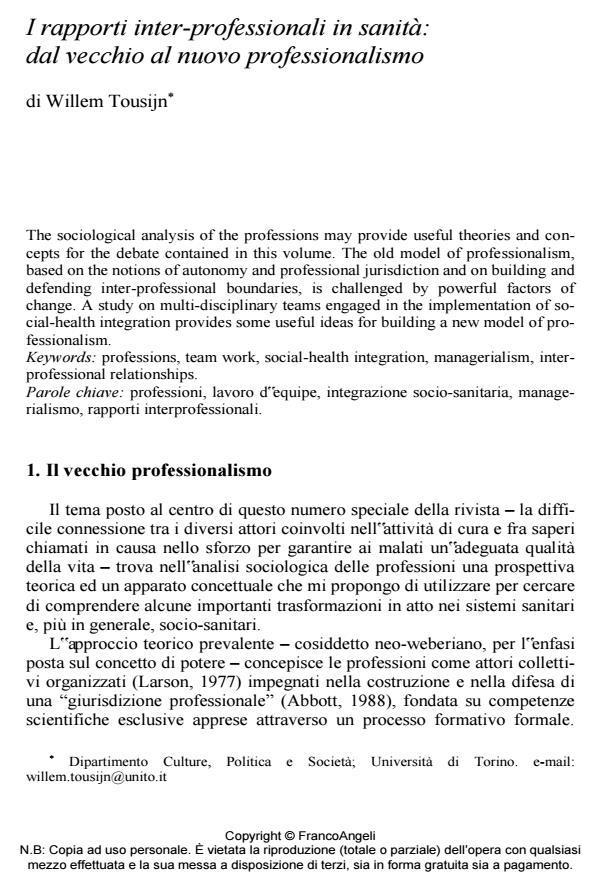I rapporti inter-professionali in sanità: dal vecchio al nuovo professionalismo
Journal title SALUTE E SOCIETÀ
Author/s Willem Tousijn
Publishing Year 2015 Issue 2015/3
Language Italian Pages 12 P. 44-55 File size 284 KB
DOI 10.3280/SES2015-003005
DOI is like a bar code for intellectual property: to have more infomation
click here
Below, you can see the article first page
If you want to buy this article in PDF format, you can do it, following the instructions to buy download credits

FrancoAngeli is member of Publishers International Linking Association, Inc (PILA), a not-for-profit association which run the CrossRef service enabling links to and from online scholarly content.
The sociological analysis of the professions may provide useful theories and concepts for the debate contained in this volume. The old model of professionalism, based on the notions of autonomy and professional jurisdiction and on building and defending inter-professional boundaries, is challenged by powerful factors of change. A study on multi-disciplinary teams engaged in the implementation of social- health integration provides some useful ideas for building a new model of professionalism.
Keywords: Professions, team work, social-health integration, managerialism, interprofessional relationships.
Willem Tousijn, I rapporti inter-professionali in sanità: dal vecchio al nuovo professionalismo in "SALUTE E SOCIETÀ" 3/2015, pp 44-55, DOI: 10.3280/SES2015-003005